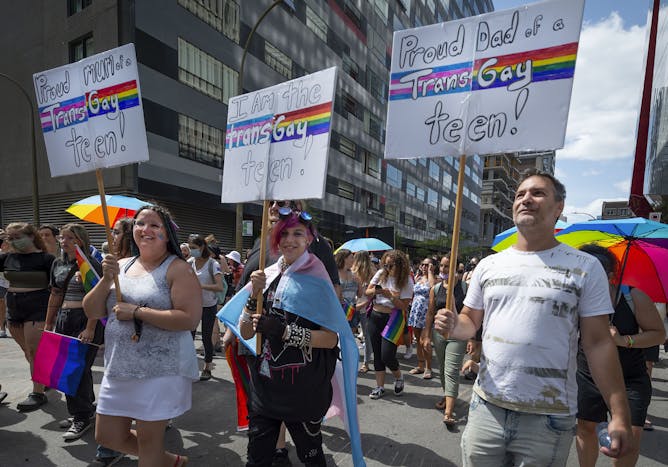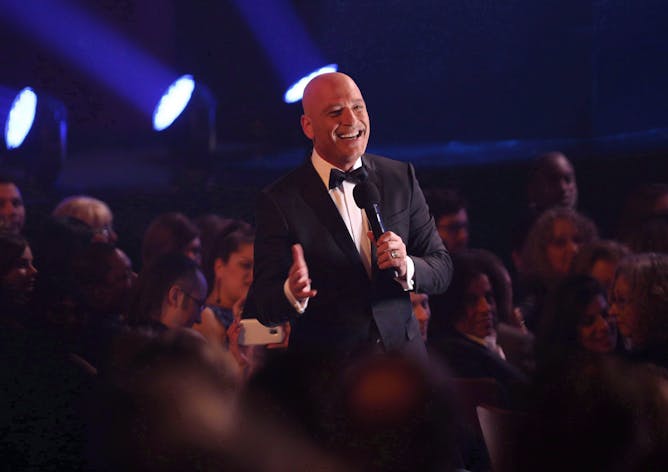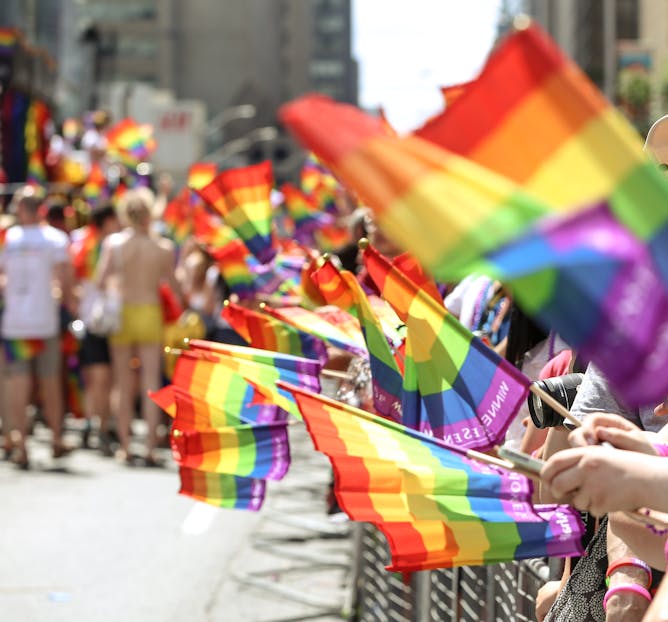|
To justify its invasion of Ukraine, Russia has repeatedly accused the country of being a neo-Nazi state. But its demonization efforts extend beyond Ukraine and target Ukrainian diasporas around the world, including here in Canada.
Why?
Today in The Conversation Canada, Vic Satzewich of McMaster University and Ivan Kozachenko of Jagiellonian University in Poland delve into the history of Ukrainian independence to explain why Russia targets, demonizes and fears Ukrainian diasporas.
They write:
"In the post-Second World War era, the Ukrainian diaspora — along with others from eastern Europe — were historically anti-Communist and anti-Soviet, championing national independence. They also helped preserve and generate many elements of national identity and narratives."
These diasporas were a constant irritant to the Soviet Union, and today's current attacks by Russia draw on an old Soviet strategy of portraying them as neo-Nazis.
Also today:
|

|
Lee-Anne Goodman
Politics, Business + Economics Editor
|
|

People rally in support of Ukraine outside the Notre-Dame Basilica in Montréal in April 2022. Scenes like these irritate Russia.
THE CANADIAN PRESS/Graham Hughes
Vic Satzewich, McMaster University; Ivan Kozachenko, Jagiellonian University
The Soviet Union and now Russia has long viewed the Ukrainian diaspora with hostility. Here’s why.
|

Video game workers in Edmonton became the first video game union in Canada — and the third in North America — after voting unanimously to unionize this month.
(Shutterstock)
Johanna Weststar, Western University
In an important step for an industry that has been accused of exploitative working conditions for decades, video game workers in Edmonton recently voted to unionize for the first time in Canada.
|

Moms and dads of queer and trans teens also have parental rights.
THE CANADIAN PRESS/Peter McCabe
Jen Gilbert, York University, Canada; Victoria Rawlings, University of Sydney
Conservative rhetoric about ‘parent rights’ that marginalizes LGBTQ+ positive sex education erases the complexity of parent identities and denies possibilities for richer school experiences.
|

Canadian Howie Mandel is a veteran stand up comic.
THE CANADIAN PRESS/Peter Power
Geo Takach, Royal Roads University
At its best, comedy can bridge, unite and heal, rather than divide, bully and perpetuate the very ills that it is uniquely equipped to help us solve.
|

2022 marks the first year Pride Toronto events will be hosted in person since the pandemic began.
(Shutterstock)
David Semaan, York University, Canada
Pride Toronto has the opportunity to change its relationship with Indigenous and racialized people.
|
La Conversation Canada
|

Alors que la population vieillit, le gouvernement doit reformuler les notions de vie active et de retraite. Une révision de l'âge de la retraite réduirait le nombre de personnes classées comme «âgées».
Shutterstock
Thomas Klassen, York University, Canada
Alors que la population vieillit, le gouvernement doit reformuler les notions de vie active et de retraite. Une révision de l’âge de la retraite réduirait le nombre de personnes classées comme ‘âgées’.
|

La pénurie de main-d'oeuvre pourrait être en partie combler si les professionnels plus âgés étaient incités à demeurer sur le marché du travail.
Shutterstock
Sylvie St-Onge, HEC Montréal
L’appui des dirigeants et l’adoption de bonnes pratiques permettent de retenir plus longtemps en emploi les professionnels de la finance plus âgés.
|
Ukraine Invasion
|
-
Tom Dannenbaum, Tufts University; Alex De Waal, Tufts University; Daniel Maxwell, Tufts University
Countries have used starvation as a war strategy for centuries, historically without being prosecuted. Three experts on hunger and humanitarian relief call for holding perpetrators accountable.
|
|
Business + Economy
|
-
Astrid R.N. Haas, University of Toronto
Intermediary cities have a vital role to play in the economies of African countries.
|
|
Culture + Society
|
-
Gail Super, University of Toronto
The study highlights the flimsy boundaries between different forms of violence: torture and extrajudicial punishment, lawful arrest, and an unlawful kidnapping.
|
|
|
|
| |
| |
| |
| |
|
|